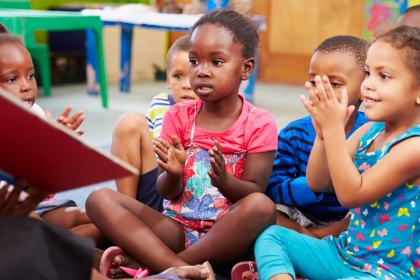There is no need to state that music plays a big part in almost everyone’s daily life regardless of his or her age, nationality, or social status. While in many situations music is used as an individual leisure time or escape mean, research shows that when shared with social groups or among family members, music has a great impact on people on different levels.
Indeed, when listening to music becomes a family ritual, not only does it strengthen bonds between members, but also has a long-term positive effect on each individual.
Music improves social bonds:
The family is the first socializing agent. Exposing children to music at the earliest ages, creates stronger bonds between them and their parents. According to research, music releases oxytocin, the hormone responsible for social bonds. Even when the child is still an unborn fetus in the womb, music empowers its bond with its mother via oxytocin.
Music improves emotional well being:
In the same line of thought, music can have a great positive effect on a person’s emotional well being. Musical rituals in families improve the well being of all family members, creating a positive and common harmonious feeling overall.
Music strengthens family cohesion:
Cohesion is highly related to emotional well being. When a group shares the same emotional state, values and cultures, unity becomes a natural part of its dynamic. Singing or listening to the same tune, shapes the cohesion between family members in a more stable way.
Music keeps familial cultures and norms alive:
Music plays a big role in occasional gatherings and celebrations. And every family follows specific norms or values associated with their history and country. The repetition of musical rituals with the same people educates about cultures and pushes individuals to cherish them and get more attached to their history.
Music helps individual development:
When an individual is raised from an early age in a positive familial environment, he or she grows up to become an overall better human being. When it comes to music, it also has advantages on the person’s individual development. For starters it has a long-term positive effect on that person. Furthermore, listening to these tunes again will make the individual associate them with happy and memorable experiences. Lullabies for example which are used for sleeping rituals, will remind grown-ups of their bedtime moments spent with their parents.
The effect of music is endless. Not only does it have personal effects, but it also develops family relations and better emotional well being. Families should adopt musical rituals with their children to live unforgettable and happy experiences.




